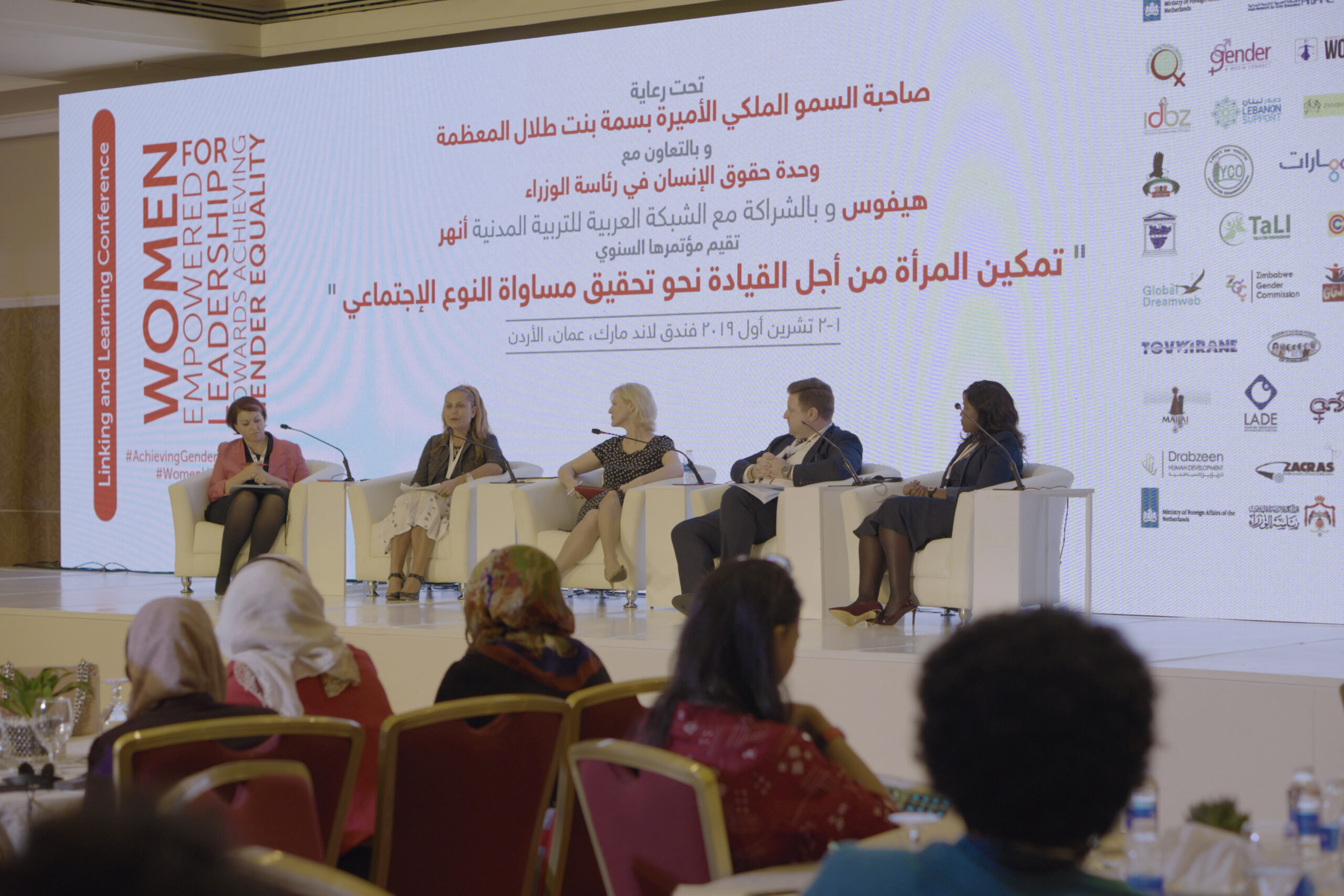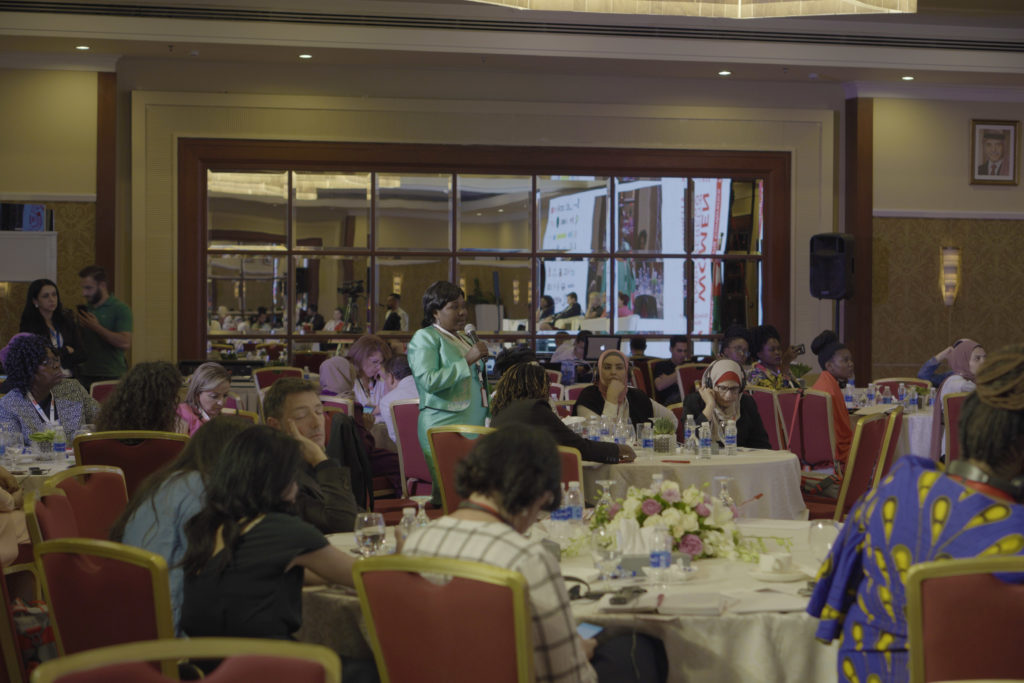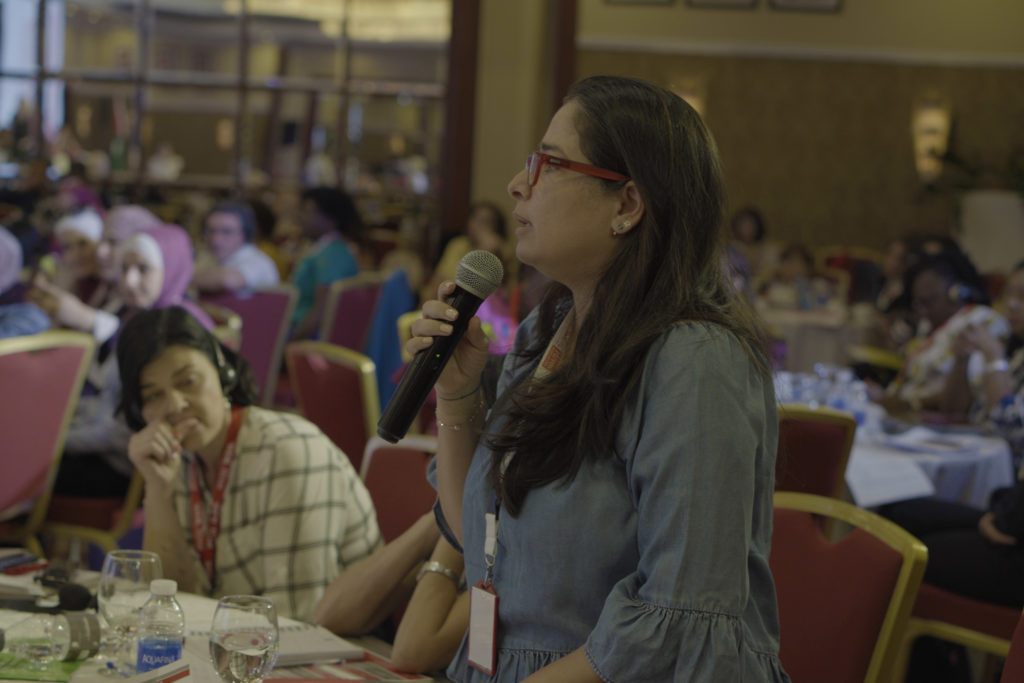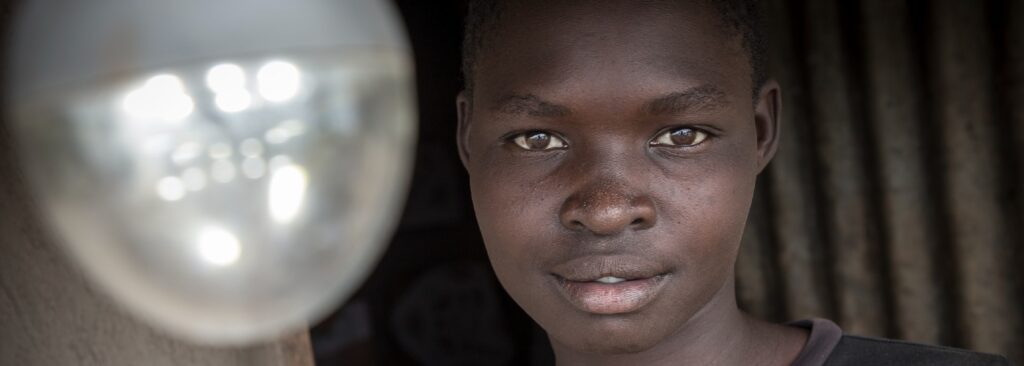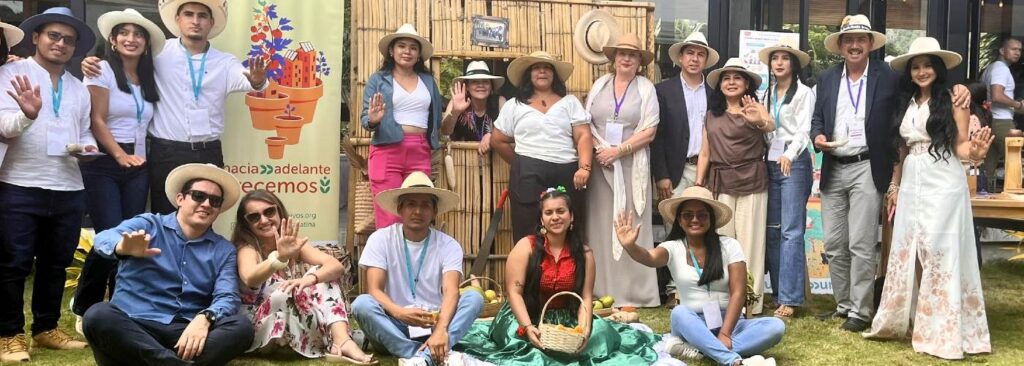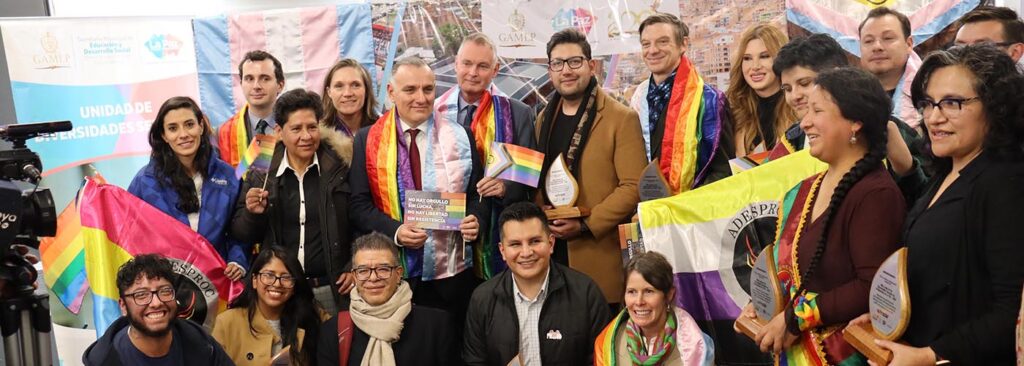id=”696″ id=”post-2099″ class=”wp-post-content-block ” itemscope itemtype=”http://schema.org/BlogPosting” itemprop=”blogPost”>
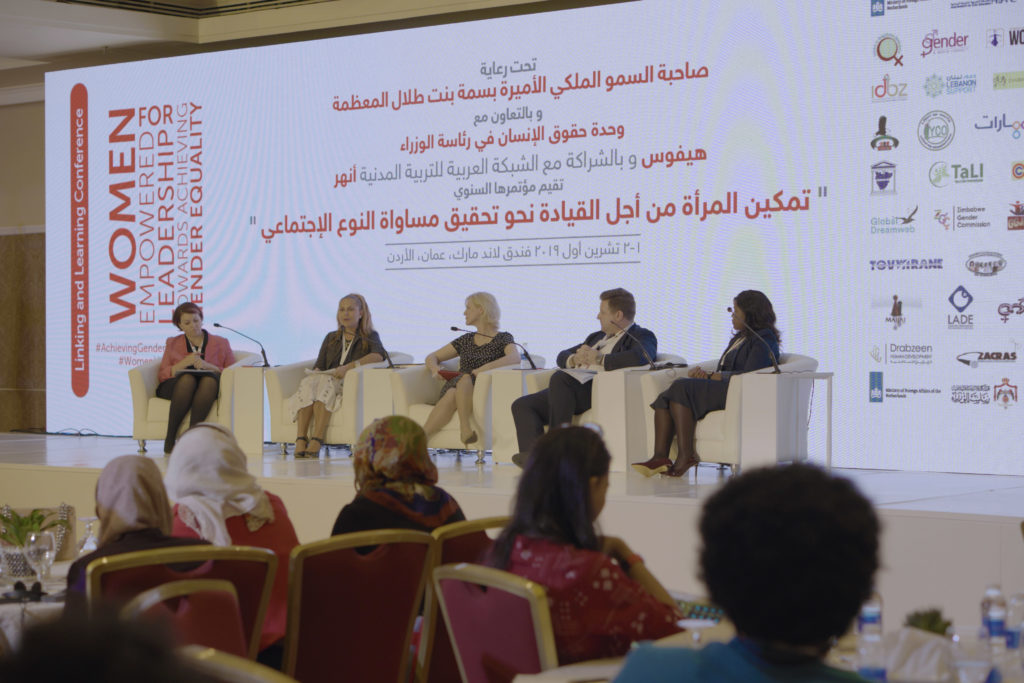
Experts share strategies on achieving inclusive gender equality at Hivos’ Linking and Learning conference
By Laudy Issa
A panel of experts at the annual Hivos WE4L Linking & Learning conference shared strategies on achieving inclusive gender equality, the fifth sustainable development goal set by the United Nations to provide women with equal access to opportunities in education, healthcare, work, and representation in political and economic decision-making processes.
“As you level down and enter into specifics, you see a different degree and speed as to how empowerment has been achieved,” said the panel facilitator, Marta Garbarino, the Head of the Partnerships and Advocacy Unit at the UN Women Jordan Country Office.
Who plays a role in achieving gender equality?
The panel raised key questions regarding who plays a role in combating marginalization, highlighting the need for a multi-faceted line of thinking where the government, civil society, funders, and academics are all held accountable.
“Gender equality success starts and ends with leadership institutions that we have: the constitution, the state, political parties, and civil societies,” said panelist Samukeliso Khumalo,
Executive Director of the Women’s Institute for Leadership Development (WILD).
Khumalo gave several points on how each player can address gender equality and combat marginalization. On a governmental level, for example, the constitution needs to be structured in a way that moves away vague terminology towards words that translate into actionable plans. The parliament needs to consider the mechanisms that protect women at various institutional levels and the ones that hold them back.
Another key question that was posed by the experts on the panel related to changing the will of political parties and politicians to act on gender inequality as a real problem.
“Political will should go beyond being left at the political parties’ discretion,” continued Khumalo. “There must be an accountability policy in place.”
How Do We Make The Fight For Gender Equality Inclusive?

Dr. Tatyana Teplova, who works with the intergovernmental Organisation for Economic Co-operation and Development (OECD), shared the importance of developing targeted actions that focus on specific issues related to gender equality. She gave the example of affirmative action –or implementing policies or practices that favour groups that were previously discriminated against.
Teplova also highlighted that targeted actions are not often effective in eliminating internal barriers, highlighting the need for a dual approach that includes horizontal mainstreaming that is implemented across the board.
“It is important to recognize that not all men and women are the same,” said Teplova, highlighting the need to recognize the added value of intersectional analyses to ensure that policies and institutional practices take the diverse needs of women from minority groups, living in extreme poverty, or who have disabilities into consideration.
Dr. Michael Steffens, who works in aid coordination with the EU Delegation to Jordan, also stressed the importance of investing in analysis and understanding the correct methodology to find the best practices across different countries.
Steffens discussed internal institutional practices of international organisations, including in-depth gender analyses of individual countries to spotlight role model countries and pinpoint harmful practices that are still evident.
“It’s also important to identify agents of change,” continued Steffens. He provided concrete examples on how to enable change, pinpointing his organisation’s work in running trainings on rights-based approaches to give people the toolkit necessary to help achieve inclusive gender equality.
As part of identifying agents of change, he also recognized the importance of protecting local human rights defenders in countries that are more “culturally-difficult to work in.”
“We need national champions to push those barriers,” said Steffens.
A Multifaceted Holistic Approach
Dr. Wafa Al-Khadra, an academic researcher with publications in the realm of literature, cultural studies, and women’s studies, discussed the benefits of a multifaceted, holistic approach that includes as many constituencies and stakeholders in the fight for equality. She also discussed the importance of moving past political will.
“It’s very important to perceive it as a political, social, cultural, and demographic that will create a critical mass,” said Al-Khadra.
The academic gave Jordan as an example. For 30 years, authorities emphasized the enrolment of girls in schools and women in universities because of a political will that only looked at equality from one perspective.
“The enrollment for females was not transferable into socio-economic equality in society,” said Al-Khadra. “We need a holistic approach that looks at all the constraints and comes up with a whole.”
Crowd interventions also brought forth important points of focus, highlighting neoliberalism and capitalism as being discriminatory in nature. Another audience member identified the need to politicize women’s issues and recognize the fight for equality in the workplace and the right of women to pass on their nationality to their children as political issues rather than just human rights issues.

